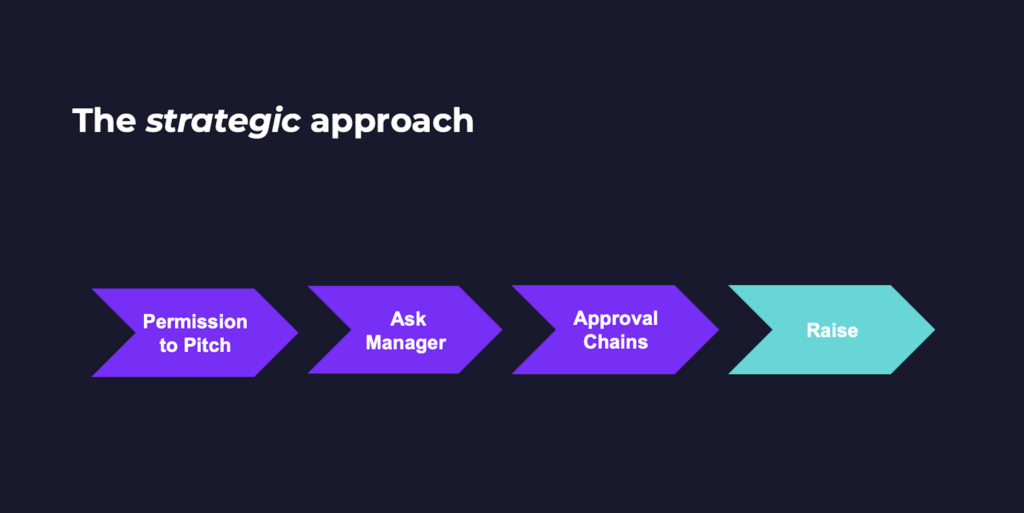How to negotiate a higher salary and come out winning
If you are struggling with the higher cost of living in Canada and you need more income, you could try negotiating a raise. Here are some tips to keep in mind.
Advertisement
If you are struggling with the higher cost of living in Canada and you need more income, you could try negotiating a raise. Here are some tips to keep in mind.

I don’t have to tell you that things are getting more expensive in Canada. We’re paying more for groceries, mortgages and rent compared to pre-pandemic times. Inflation may now be under control, but prices are still uncomfortably high—prompting many Canadians to look for ways to earn more money. If you’re in this situation, you could start a side hustle for extra income. If that’s not an option—not everyone has the time, energy or resources—you could try negotiating a raise or a higher salary at your current job.
Only about half of Canadians (52%) feel they are paid fairly, yet just 30% of us feel comfortable with the idea of negotiating our salary, according to an April 2022 study by employment website Indeed. Meanwhile, the amount of income needed to afford buying a home in many major Canadian cities is much higher than the national average salary, according to an analysis by mortgage brokerage and comparison site Ratehub.ca. (Both Ratehub.ca and MoneySense.ca are owned by Ratehub Inc.)
Even if you’re not hoping to buy a home, Canada’s high cost of living may be putting pressure on your finances. Read below to learn tips for negotiating pay, vacation days and more.
There are three main reasons to negotiate a higher salary with a potential employer, or renegotiate your pay with your current one.
To get a raise, you’ll need to show your employer why you deserve it. To prepare for that conversation, think about whether you have “exceeded” or “ascended” your job duties, says Struan. This will also help you figure out how much of a raise you can ask for.
Here’s how to determine if you’ve exceeded or ascended your role, says Struan:
The next step is to figure out how much of a raise you want to ask for. “There’s external equity and then there’s internal equity. So what are people making outside in the market, what are people making within your organization, and how does your salary compare to that?” says Toast CEO Marissa McNeelands. “You need to find multiple sources of data in order to figure out how much you should be paid.” Toast is a subscription-based mentorship and networking platform, started by McNeelands and co-founder and chief growth officer April Hicke, for Canadian women who work in tech or want to get into the industry.
To get some internal data at your job, consider asking your co-workers who are at a similar seniority level (especially those you’re already friendly with) about their salary. It can be an uncomfortable topic, but if they’re willing to share details, this can help you figure out what’s realistic to ask for. “Find your allies within your organization and then ask: ‘Hey, if you’re comfortable, I’d love to speak transparently about salary with you—it will help me to ensure that I’m being paid equitably,’” McNeelands says. You can also share how much you make first, to center the conversation on your own pay if the other person isn’t comfortable sharing their salary details, she says.
You can dig even deeper by meeting with your employer’s HR department. Try to find out the maximum salary amount that they could offer you if a raise becomes possible for your current job, and if applicable to your situation, the next level up. Compare this to the market salary for your job title in your region using compensation comparison sites like Glassdoor and PayScale. Or, if you’re actively applying to jobs at other companies, compare your organization’s salary range to those of prospective employers.
If you are still having trouble determining how much to ask for, you could meet with a salary negotiation coach or a career coach.
Now that you know what you might be able to ask for, Struan offers these tips for preparing to renegotiate your compensation package:

Struan cautions against leading your wage negotiation conversation by saying you have received a more competitive offer from another company—especially if you want to stay at your current organization and potentially grow your career there. “In some cases, this can make things a little bit awkward, because then the organization knows that you were planning on leaving, and they may replace you at some point or make moves to reduce the scope of your role,” Struan says.
If you’re underpaid compared to industry standards and your employer rejects your pay increase request, you shouldn’t be afraid to find another job, says Hicke. “If you’re not getting paid what you need to build wealth within your family, or whatever you need to thrive, then you need to go somewhere else where you can do that.”
If you’re hesitant to quit your job for reasons like the current economic conditions or not having another promising opportunity lined up, or if you genuinely enjoy the work you do and want to stay, then try to keep the salary conversation going. McNeelands recommends that you “set up regular meetings to discuss your salary and what types of regular performance metrics you need to show to qualify for an increase.” Ideally, she says, you have regular one-on-one meetings with your manager, and you should have check-ins about your development or progress monthly.
Let’s say your raise request was rejected, or you feel you are being undervalued, and you want to move on to find a new position where you can earn a higher salary.
McNeelands says one of the most common questions she and Hicke get from Toast members who are applying to new jobs is: “Am I going to be screened out if I give a [desired] salary range that’s too low or too high?” To get around this, when you fill out a job application, leave the field for desired salary blank or enter “open for discussion,” McNeelands recommends. However, she says that if you know the minimum salary you need in order to sustain your lifestyle, and you can’t accept a position that pays less, enter a number up to 20% higher than your minimum required pay. Providing a number that’s a bit higher than your minimum required pay can help buffer your finances against inflation after you accept the new role, says McNeelands.
Chelsea Squires, a Toast member and senior manager of data science at ATB Financial in Calgary, says that her first salary negotiation after switching from the oil and gas industry to the tech industry was met with a flat-out “no.” But she has learned to treat these uncomfortable moments as an opportunity to evaluate the company and help her decide the next steps in her job search.
“If I’m not even comfortable negotiating for my salary right off the bat with the company, I then feel I’m not going to be able to pitch my work or self-advocate for future opportunities there,” Squires says. “So I started seeing that as more of a gauge as to whether or not I would really want to commit to working for this company.”
In a LinkedIn post from May of 2023 Struan explains different ways you can answer the question “What are your salary expectations?” in a job interview. Your response could depend on your personal circumstances (like whether you are unemployed, or happily employed and in demand as a candidate), as well as how much information you have about the salary range the company has determined for the role.
Remember, salary isn’t the only thing you can negotiate in a job offer. Here are some other money perks to keep in mind when evaluating a job offer.
Many Canadians don’t feel comfortable talking about money, which only leads to a greater sense of mystery and confusion around how much you should be paid. “Once [Marissa and I] started having these open conversations and surrounding ourselves with networks of other women who had open pay conversations, we both doubled our salary,” Hicke says.
Don’t be afraid to talk to your friends, family, co-workers, recruiters and managers about compensation. The only way you’ll be paid fairly is if you know what that means to you, and to learn how to ask for it. So, get negotiating! Do you have any wage negotiation tips or experience asking for a raise? Share your thoughts in the comments below.
Share this article Share on Facebook Share on Twitter Share on Linkedin Share on Reddit Share on Email